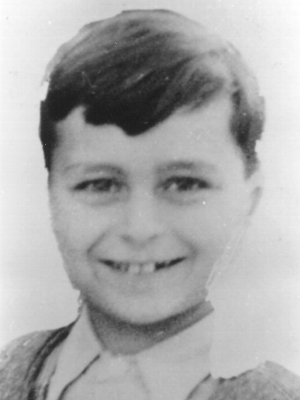
Born in Vienna on October 30, 1935, Georges Halpern was not yet three years old when Austria lost its independence and became part of Nazi Germany. Vienna had a Jewish population of nearly 175,000 and was one of the world's leading Jewish cultural centers. But Vienna was also notorious for its reputation as a city in which antisemitism flourished. When Germany took over in March 1938, thousands of Viennese willingly joined the Nazis in persecuting their Jewish neighbors.
Seeing no hope under the Nazis, the Halpern family fled to France. There Georges's mother became seriously ill and had to be hospitalized for an extended period of time. To make matters worse, the Germans marched into France in the spring of 1940. Georges was shuttled from one shelter to the next, until he was finally sent to live in the children's home in Izieu, in May 1943.
Given the circumstances, life at the children's home was comparatively serene. Outings and parties arranged by the sympathetic staff helped the children forget, if only temporarily, the cruel realities of the German occupation and the separation of families. Georges, who called himself Georgy, wrote regularly to his parents, describing his life in the children's home. He lived for the day when he could be reunited with his parents. But that day was not to come.
On April 6, 1944, the home was raided by the Germans. Georges and his friends were arrested and shipped to the Auschwitz death camp where they were murdered in the gas chamber.
The German officer responsible for the raid was Klaus Barbie. In a scandalous revelation, it was learned that Barbie had escaped punishment after the war by working as a spy for the United States. Barbie, who had been living in Bolivia under a false name, was eventually sent to France where, on July 4, 1987, he was sentenced to life in prison for "crimes against humanity."
Georges Halpern, however, did not live to see justice done. He was murdered at Auschwitz at the age of eight.

